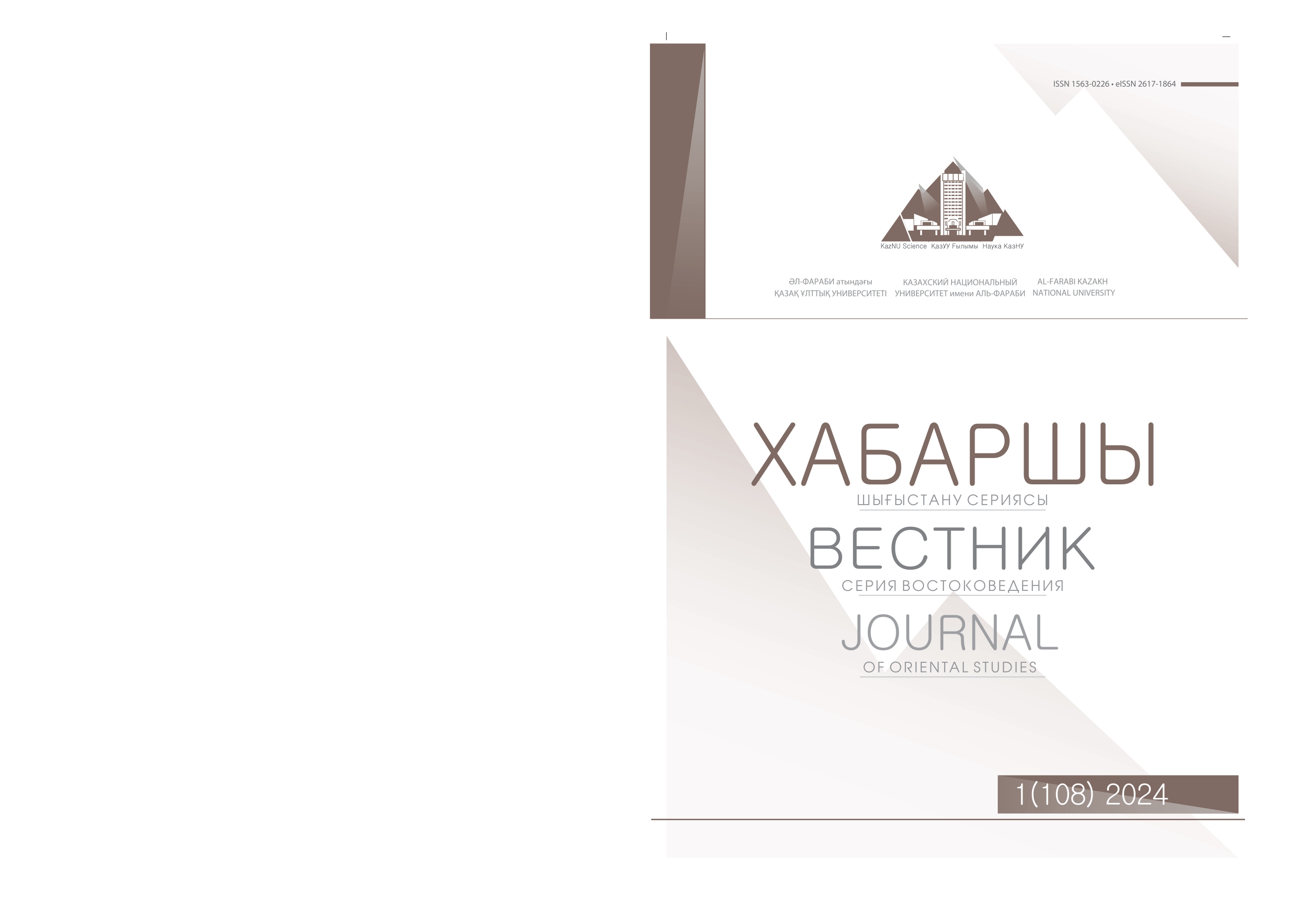Hermeneutical analysis of the poems of Ahmed Shawki
DOI:
https://doi.org/10.26577/JOS.2024.v108.i1.02Keywords:
Arabic literature, Ahmed Shawki, hermeneutic analysis, hidden meaning, subtext, cog- nitive content.Abstract
The article presents a detailed analysis of the life and poetic work of the representative of the Arabic literature, the founder of modern Egyptian poetry, Ahmed Shawki (1870-1932). In the process of philosophical and linguistic research, the method of theoretical and hermeneutical analysis of the poet’s artistic word was used. The hermeneutic approach made it possible to reveal the inner semantic load of the poems, their subtext. In the course of the study, it was found that the cognitive (related to knowledge) content of Shawki’s poems is conceptualized in his patriotic position, in relation to the freedom and independence of Egypt. The poet recognizes himself through the knowledge of individual composites of the historical fate of his country. The article containing new conclusions may be of theoretical and practical value for subsequent scientific work on the hermeneutical method of studying the poetry of Ahmed Shawki. Despite the significant position of the poet in International literature, his personality and works have not become the object of research in Kazakhstan.














